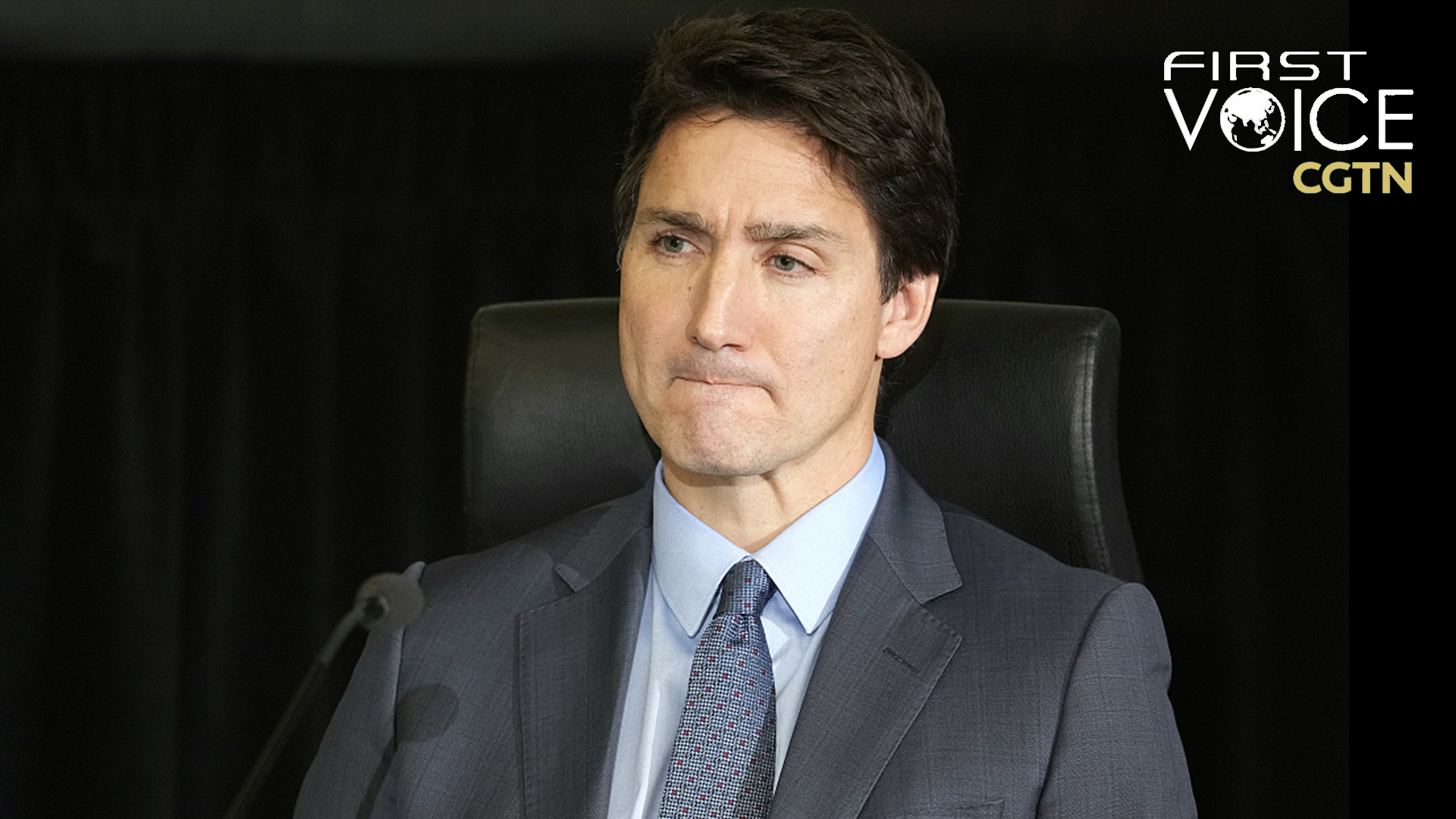
Editor's note: CGTN's First Voice provides instant commentary on breaking stories. The column clarifies emerging issues and better defines the news agenda, offering a Chinese perspective on the latest global events.
On November 27, Canada unveiled its Indo-Pacific strategy, pouring in $1.7 billion to increase its military and cyber presence in the region. Reuters reports that this 26-page strategy, while tending to Canada's relationship with other countries in the region, mentions China more than 50 times. The document describes China as an "increasingly disruptive global power" that's shaping the world into a more "permissive environment for interests and values that increasingly depart" from Canada's.
The document claims the approach is "shaped by a realistic and clear-eyed assessment of today's China." But that does not appear to be true.
The Wall Street Journal wrote that when Justin Trudeau first became the Prime Minister, he sought to improve bilateral relations with China. There were exploratory discussions about a possible Canada-China free trade agreement in 2017. But in the subsequent years, Trudeau, under pressure from his political adversaries, domestic pundits and his neighbor the United States, became tougher and tougher in regards to Canada's China policy. Apparently, Canada has lost its own identity in the Indo-Pacific with this strategic document, which replicates the U.S.'s in spirit if not in letter.
Bowing to domestic political demands and purported ally's pressure is neither realistic nor clear-eyed. It's a realignment of Canada's interests based on ideology and the politician's personal standing in the country. Trudeau said before that there was "a huge amount of untapped potential" between the economies of the two countries. Now, Ottawa wants to act "decisively when investments from state-owned enterprises and other foreign entities threaten our national security" – written specifically in the China section of the strategy, with the same national security" platitude that has been overused to rationalize the anti-China fervent in other Western countries.

People stock up on groceries from a supermarket after the increase in inflation in Toronto, Canada, November 10, 2022. /CFP
People stock up on groceries from a supermarket after the increase in inflation in Toronto, Canada, November 10, 2022. /CFP
Such "rationalization" is already threatening the healthy development of the Indo-Pacific. It is even more dangerous coming from a leader weakened at home. Trudeau is ruling a minority government. Polls have shown that the Liberal Party's popularity has continued to decline over the past year. Polls are finding that the Liberals and Conservatives' approvals are either running neck-and-neck or that the Conservatives are ahead. Economies are expecting two consecutive quarters of GDP decline for Canada at the start of 2023. Trudeau himself had made appearance last week before an independent public commission to defend his use of emergency powers during the Freedom Convoy protests earlier this year. He had given a performance described by the Spectator magazine as "present before the commission in body this week, in spirit he was with Alice in Wonderland."
With challenges on all fronts, it has become a default for Western leaders to shift attention to international issues where they could attempt to project a sense of strength. Canada alone may not have the power to transform the balance in the region, but its willingness to bandwagon with more powerful partners and trading international relations for personal political benefits could invite more countries to jump in the fray, hoping to gain a slice of rewards.
It's cancerous and it could spread. Canada needs to see that there is a price to pay at the end of such a strategy. And in the present condition it and its allies are in right now, it couldn't afford to lose anymore.
(If you want to contribute and have specific expertise, please contact us at opinions@cgtn.com. Follow @thouse_opinions on Twitter to discover the latest commentaries in the CGTN Opinion Section.)